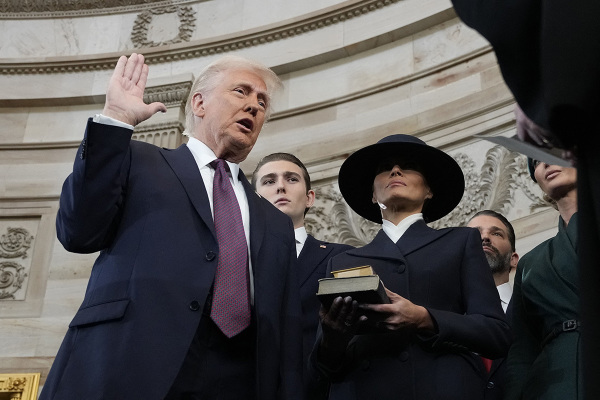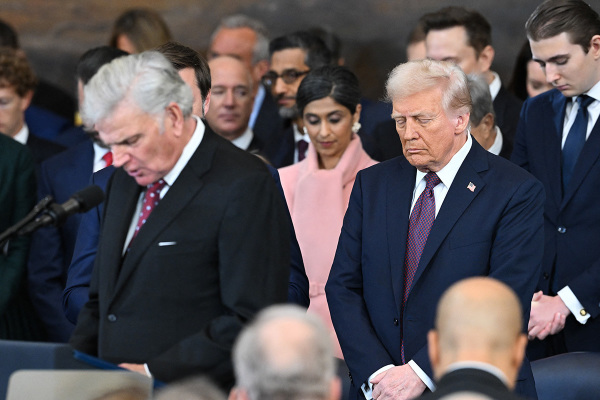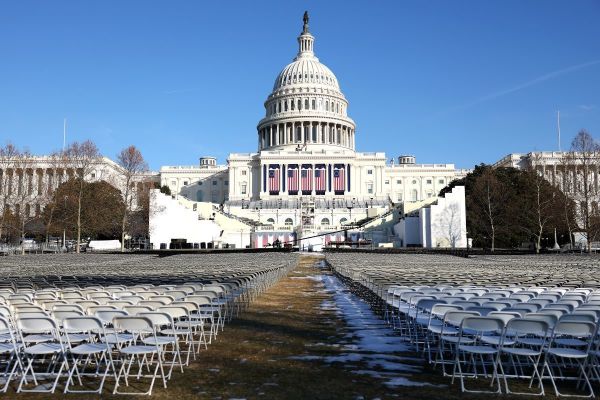'Candy Cane' Case Appealed to US Supreme Court
A case involving two Texas school principals allegedly infringing on students' constitutional right to freedom of religious expression – known as Morgan v. Swanson, or the "candy cane" case – which started with one school banning distribution of candy cane pens, was appealed to the U.S. Supreme Court Thursday after eight years in litigation.
The case has come to symbolize what many call "the war on Christmas," and it represents families of school children whose constitutional right to freedom of religion was allegedly violated. The parents were joined in their fight by Liberty Institute, a conservative Christian non-profit, which provides them with legal help.
The case originated in 2003 when third-grade student, Jonathan Morgan, brought candy cane-shaped pens to school to hand them out to his fellow classmates during a “winter party” at Thomas Elementary School in Plano, Texas. The pens had religious messages attached to them, explaining the Christian origin of candy canes.
The school Principal Lynn Swanson had reportedly met with Morgan’s parents before the party and told them that school officials would confiscate and ban all gifts having a religious nature and that students could not use the term “Christmas” during any school activity.
The school has a history of such alleged free speech violations. In 2001, at the same school, another student, Michaela Wade, faced similar repercussions after passing out goodie bags, which contained “Jesus is the Reason for the Season” pencils in them.
Liberty Institute, which "works to restore and defend religious freedoms in schools, churches and the public arena," has become involved with the case, as the agency's officials were additionally outraged by the fact that the same school banned an entire classroom from writing “Merry Christmas” on cards to American troops serving in Iraq.
"Religious speech and expression is not banned in this country, it's protected" Kelly Shackelford, Esq., president and CEO of Liberty Institute, told The Christian Post Saturday.
He added that the timing of the appeal is accidental, though "very fitting," as it happened three days before Christmas.
The lawsuit was joined by another case. In 2004 – at another school, Rasor Elementary, in the same town – Stephanie Versher was stopped by the principal, Jackie Bombchill, from handing out free tickets to a Christian drama, even though she did not distribute the tickets during class hours. Versher was also reportedly prevented from handing out “Jesus loves me this I know, for the Bible tells me so” pencils after school.
The parents, together with Liberty Institute, contended that the two principals were in violation of religious viewpoint discrimination while school officials reportedly argued that the First Amendment freedom of speech rights had never been extended to the distribution of non-curricular materials in public elementary schools.
"Every school official knows that engaging in religious viewpoint discrimination against students is unconstitutional," Shackelford said in a statement released Thursday. "Saying that school officials can engage in such religious discrimination without any responsibility is not the law and would send exactly the wrong message to millions of school children and their families."
The case triggered a series of changes and attempted changes in school district policies and state law, "evoking questions about religious expression in schools and forcing the examination of student's First Amendment rights," according to a statement by Liberty Institute.
In late September, the two elementary school principals were declared immune from liability by the Fifth Circuit U.S. Court of Appeals, even though the court also said that the principals did violate the children's constitutional rights.
"We've appealed that part to the Supreme Court, saying: Look, this will be a really bad signal if you you were to send the message nationwide that you can engage in discrimination against children and there will be no consequences, to all government officials nationwide," Shackelford told CP. "We're encouraging the court to take it [the case] and make clear that this type of religious discrimination is not allowed, and that there are consequences and accountability for any government officials who decide to do it."
In the appeal documentation, Circuit Judge Fortunato P. Benavides wrote: "Answering this question requires recourse to a complicated body of law that seeks, often clumsily, to balance a number of competing First Amendment imperatives."
If accepted- which will be known in several months – the case would be the first of the sort ever to be taken by the U.S. Supreme Court, Shackelford said. Even though very similar cases of alleged violation of religious freedom in schools took place in the country in recent past, none of them made it all the way to the top institution of American judiciary system.






















